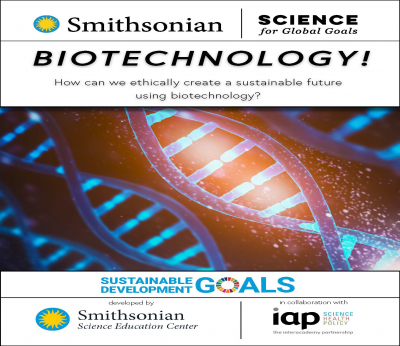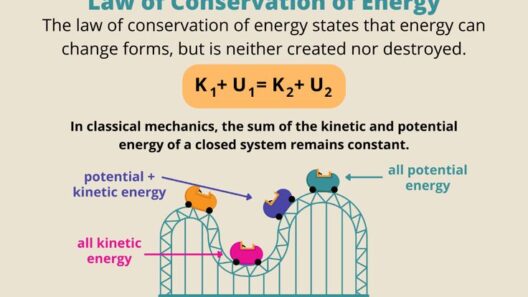Biotechnology, an intricate amalgamation of biological sciences and engineering techniques, harbors an immense potential to revolutionize energy conservation practices. As the world grapples with the exigencies of climate change and the relentless depletion of natural resources, biotechnology offers innovative solutions to mitigate these pressing issues, thereby ensuring a sustainable future. This article explores the multifaceted impact biotechnology can have on energy conservation through advancements in biofuels, waste management, and sustainable agricultural practices.
Novel Biofuels: The Future of Energy?
The innovation of biofuels represents one of the most significant contributions of biotechnology to energy conservation. Traditional fossil fuels are not only finite but also contribute extensively to greenhouse gas emissions. Biofuels, derived from organic matter, offer a promising alternative that can substantially reduce carbon footprints. Through genetic engineering, scientists are optimizing microalgae and other biomass sources to produce lipids that can be converted into biodiesel. This method exploits the rapid growth rates and carbon sequestration capabilities of these organisms, resulting in a more sustainable and eco-friendly energy source.
Moreover, advancements in synthetic biology enable the engineering of microorganisms that can synthesize biofuels more efficiently. These engineered microorganisms can metabolize various substrates, including agricultural waste and even CO2, potentially allowing for a closed-loop energy cycle. As technology matures, biofuels can become a cornerstone of the global energy portfolio, facilitating a paradigm shift towards renewable energy.
Enhanced Energy Efficiency through Waste Management
The integration of biotechnology in waste management systems is another pivotal arena for energy conservation. Increasing waste production poses an environmental hazard but, more importantly, it represents an untapped energy resource. The process of anaerobic digestion, utilizing microbial activity to break down organic waste, produces biogas—primarily composed of methane. This biogas can be harnessed for energy, reducing reliance on conventional fossil fuels while simultaneously addressing waste disposal challenges.
Further, bioprocessing technologies have emerged to convert agricultural runoff, food waste, and other biodegradable materials into value-added products. By diverting waste from landfills and processing it into energy, society can significantly diminish methane emissions produced during decomposition. This multifaceted approach not only promotes energy conservation but also fosters circular economic practices, wherein waste becomes a valuable resource.
Sustainable Agriculture and Reduced Energy Inputs
Biotechnology in agriculture can profoundly influence energy conservation strategies. Traditional farming methods demand significant energy inputs, from the production of chemical fertilizers to the fuel consumption associated with tillage and irrigation. Biotechnology has ushered in a new era of crop engineering that allows for the development of genetically modified organisms (GMOs) exhibiting resilience to pests, diseases, and extreme weather conditions. These traits lead to decreased reliance on chemical inputs and conserve energy across agricultural systems.
For instance, drought-resistant crop varieties can thrive in arid conditions, minimizing the energy expended on irrigation. Improved nutrient-use efficiency enables crops to utilize fertilizers more effectively, reducing the energy-intensive processes associated with their production and application. Additionally, cover cropping and no-till farming techniques promote soil health while reducing soil disturbance, which further conserves energy resources and enhances carbon sequestration capabilities in agricultural landscapes.
Microbial Fuel Cells and Bioelectricity
Another compelling avenue through which biotechnology may enhance energy conservation involves the development of microbial fuel cells (MFCs). MFC technology leverages the metabolic processes of microorganisms to generate electricity. By harnessing the biochemical activity of these microorganisms when they consume organic substrates, energy can be produced in an environmentally friendly manner. MFCs can be particularly effective in treating wastewater while concomitantly generating electricity, thereby addressing dual challenges—waste treatment and energy generation.
The scalability of MFC technology could lead to decentralized energy production, enabling communities to harness local waste and resources for energy needs. This localized approach to energy generation not only conserves energy but also reduces transmission losses typically associated with centralized power plants.
Biotechnology and Renewable Energy Storage
Energy storage remains a formidable challenge in the realm of renewable energy. As solar and wind energy generation can be intermittent, there is a growing need for efficient energy storage systems. Biotechnology offers innovative solutions to this challenge. Bio-based materials, such as biopolymers and biocomposite materials, are being investigated for their potential use in advanced battery technologies. These sustainable materials can lead to the development of more efficient, longer-lasting storage systems with a reduced environmental impact.
Furthermore, combining biotechnology with nanotechnology may produce bio-inspired systems that enhance energy storage density and efficiency. These advancements could lead to breakthroughs that foster the widespread adoption of renewable energy sources and diminish reliance on fossil fuels.
Conclusion: A Sustainable Path Forward
The intersection of biotechnology and energy conservation is laden with promise, providing an array of innovative solutions to address the multifaceted challenges posed by climate change. From the development of biofuels and enhanced agricultural practices to transformative waste management systems and energy storage innovations, biotechnology offers a pathway towards a sustainable energy future.
The allure of biotechnology lies not only in its technological advancements but also in its ability to craft an equilibrium between human needs and environmental preservation. As we delve deeper into biotechnological applications, it becomes increasingly imperative to embrace these innovations, steering society toward a more sustainable, energy-efficient tomorrow.







